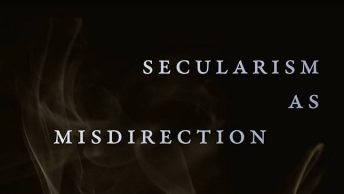Justice Arijit Pasayat of the Supreme Court is retiring on May 9, and has been one of the most active Judges in the history of Indian Supreme Court. Having been appointed on October 19, 2001, Justice Pasayat has so far delivered 2227 judgments (as on April 30, 2009). Only a comparison could reveal whether it is also the highest number of judgments to emanate from a single Judge so far. Tomorrow, he is delivering judgment in the most-awaited matter regarding vacation of stay on the trial of Gujarat carnage cases (NHRC vs. State of Gujarat) by disposing as many as 25 petitions at one go. Truly, his contribution to reducing the Supreme Court’s docket in the last nine years is phenomenal. Justice Pasayat also happens to be one of the most controversial Judges, in terms of the intense debates that some of his judgments invited. Hopefully, he will write his memoirs to throw light on the judicial controversies that marked the Supreme Court during the last nine memorable years, and contribute to the legal scholarship in other ways. LAOT wishes him a long and productive life ahead on the eve of his retirement. It is hoped that some of us on this blog could assess his contribution dispassionately.
Tarunabh adds: In a rape and murder case decided this week, Justice Pasayat orders death penalty, but Justice Ganguly dissents. It will surely reopen the DP debate when the 3-judge bench looks at it. The judgments are here and here.






Interesting (and strongly-worded) extracts from Justice Ganguly’s opinion:
68. In a criminal trial where the prosecution seeks to make out a case for imposition of death sentence, it has to discharge a very heavy and an onerous burden. In such cases, the prosecution must, and I repeat, must discharge this burden by demonstrating the existence of aggravating circumstances and the consequential absence of mitigating
circumstances. In discharging such a burden the prosecution must not only prove beyond reasonable doubt that the accused has committed the crime but in order to make out a case for death sentence, it also has to prove beyond any reasonable doubt how the crime has been committed and specially the aggravating circumstances which warrant a death penalty. In such exercise by the prosecution, the accused must be given a real and effective chance of rebuttal and to disprove the existence of aggravating circumstance. Therefore apart from his examination under Section 313, the accused must be separately heard on the sentence to be imposed on him where he can demonstrate all the mitigating circumstances. Those must be weighed in the balance and they must receive a liberal and expansive interpretation by Court.
94. Therefore, this Court cannot afford to prioritise the sentiments of outrage about the
nature of the crimes committed over the requirement to carefully consider whether the person committing the crime is a threat to the society. The Court must consider whether there is a possibility of reform or rehabilitation of the man committing the crime and which must be at the heart of the sentencing process. It is only this approach that can keep imposition of death sentence within the `rarest of the rare cases’.
95. The expression `rarest of rare cases’ is not to be read as a mere play on words or a tautologous expression.
96. In upholding the constitutional validity of capital punishment, the Constitution Bench of this Court used that expression in Bachan Singh in order to read down and confine the imposition of capital punishment to extremely limited cases. This is a very loaded expression and is not to trifled with. It is pregnant with respect for the inviolability of human life. That is why the word `rare’ has been used twice and once in a superlative sense. Therefore, the significance of this expression cannot be watered down on a perceived notion of a `cry for justice’.
Not every reader is entirely happy with the way his judgements are written. His judgements, specifically on criminal law, use same language repeatedly – which compels one to ponder if there is individualized justice on the merit. I understand the distinction between ‘hard cases’ and ‘soft cases’, but given the “appellate” structure, I am not sure to what extend would this distinction apply. And be consciously kept in mind by the judges, especially in disposing bunch cases.
I am not against bunch disposal or, even against Justice Prasayat on this matter, but is something that deserves some thought.
He will always be remembered. Most people think very highly of him and I am sure he knows that. He is a highly feared Judge in this country and rightly so. His immense contribution to this country cannot be adequately assessed except by a memoir dedicated to address his tenure.
I wish him a memorable farewell and a moment of exit in which, he recognises that people around him sincerely feel that he will be missed.